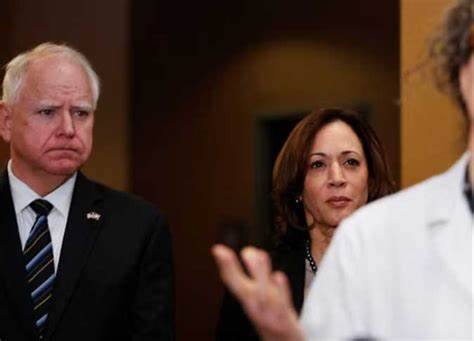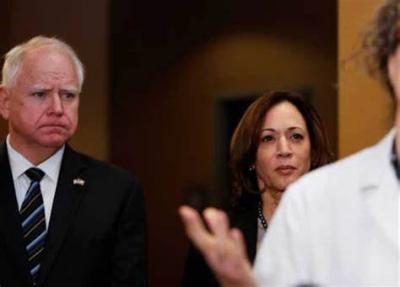Tim Walz, the Governor of Minnesota nominated by Kamala Harris, the Democratic candidate for the U.S. presidency, is attracting attention from American Republicans as well as interest within China due to his long history with a country viewed as Washington's greatest economic and military competitor. Attacks from supporters of Republican presidential candidate, former President Donald Trump, began after Harris announced on Tuesday that Walz, who taught in China after graduation and has traveled there many times since then, is her choice for vice president.
Richard Grenell, who served as the U.S. Ambassador to Germany and Acting Director of National Intelligence under the Trump administration, stated on X: "Communist China is very happy with Kamala's selection of Governor Tim Walz as vice president." The Harris-Walz campaign rejected such criticisms, citing Walz's history of criticizing Beijing's human rights record. James Singer, a spokesman for the campaign, said, "Republicans are twisting the fundamental facts." He added that Walz has long stood up to the Chinese Communist Party and has "fought for human rights and democracy, always prioritizing American jobs and industries."
Walz went to China to teach English and American history in 1989 during the bloody crackdown against pro-democracy protesters in Tiananmen Square when he was a recent college graduate. Later, he and his wife started a company to organize trips to China for American students, visiting China over 30 times. Walz speaks some Chinese, married on June 4th, a date he says he will never forget as it coincides with the anniversary of the Tiananmen Square massacre, and he spent his honeymoon in China.
Unlike the 1980s and 1990s when Walz began his travels, the desire for a tough stance on China is one of the few genuine sentiments embraced by both Republicans and Democrats at a time of deep divisions between them. While Walz stated that U.S.-China relations should not be hostile, he has worked on bills criticizing Beijing's human rights record during his 12-year tenure in the House of Representatives and was a member of the Congressional-Executive Commission on China focused on human rights. U.S. vice presidents typically do not have much influence on foreign policy issues, but they can impact the president's thinking on global affairs.




